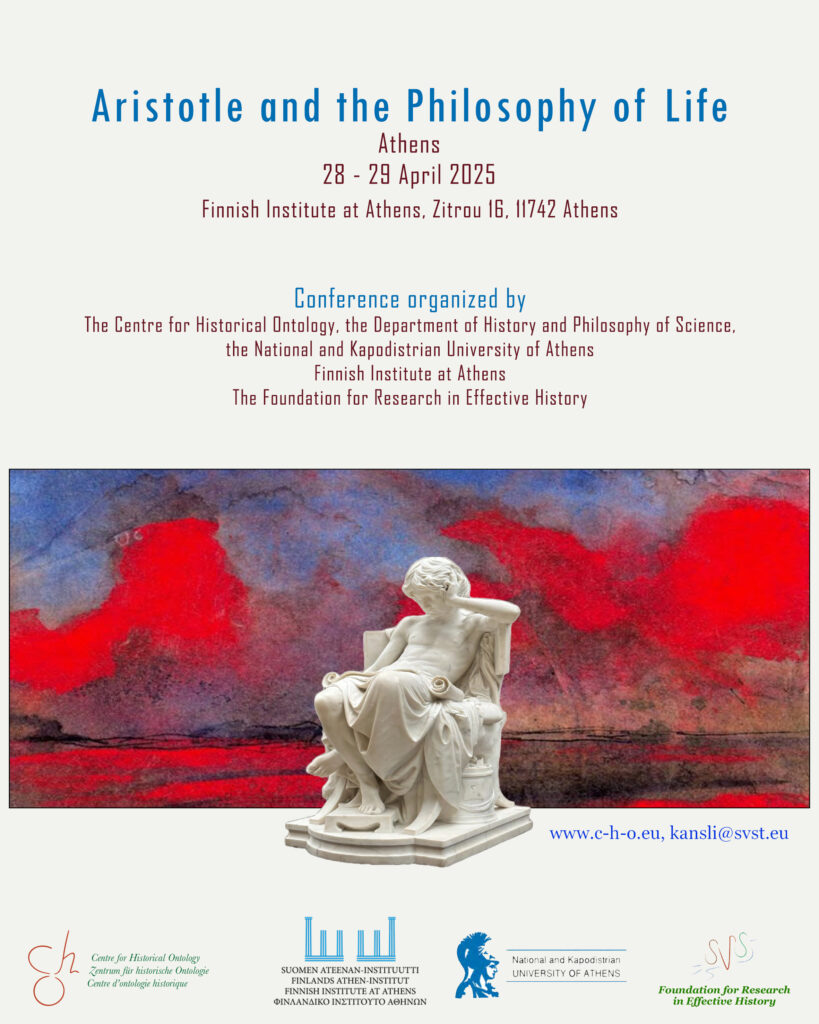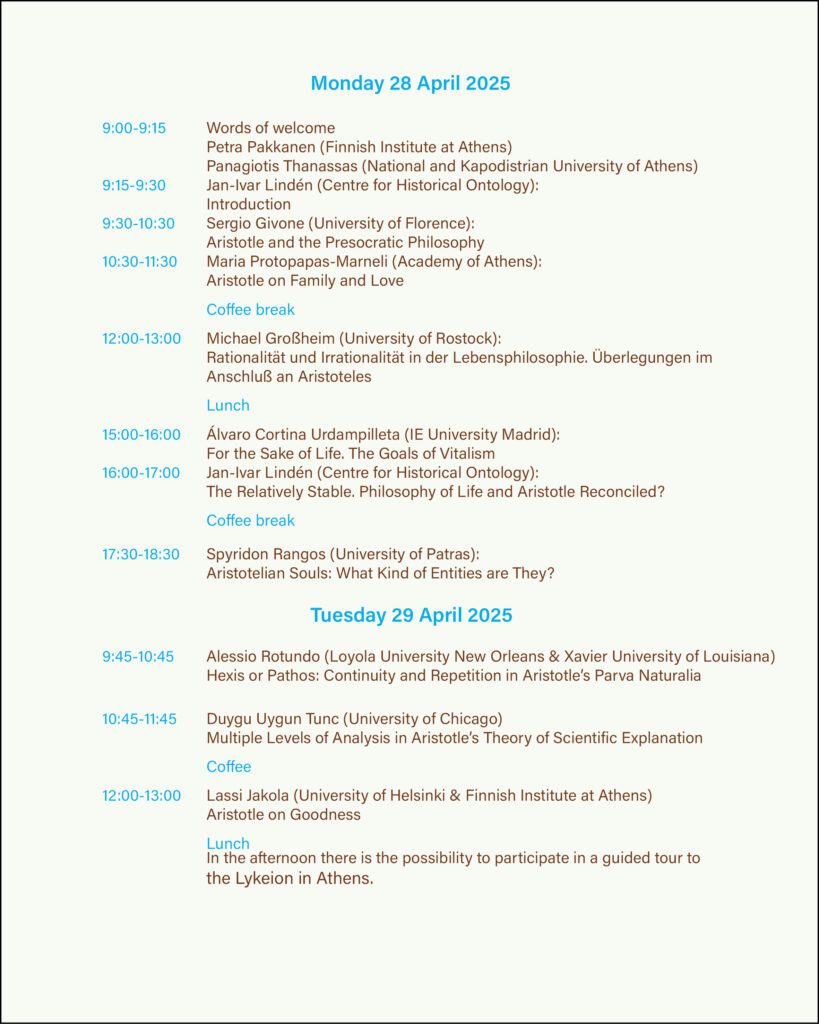
Conference organized by the Centre for Historical Ontology, the Department of History and Philosophy of Science at the National and Kapodistrian University of Athens, the Finnish Institute at Athens and the Foundation for Research in Effective History.
In philosophy and psychology dualist conceptions have long prevailed, stressing the distinction between the mental and the corporeal sphere. This point of view has increasingly been contested, often with reference to the key concept of embodiment. Aristotelian psychology has in this context regained a new actuality as the psychê for Aristotle is precisely a principle working in the living body. This has created a new interest in the question of teleology which for centuries has been the shadow of modern science. A closer reading of the ancient sources shows that Aristotle does not regard ends and goals as steering or planning natural principles of the kind that were (and often rightly so) the object of polemics in early modern philosophy and science. In this context the role of emotions, sensations, dispositions and desire in Aristotle is especially interesting.
Much later the so called philosophy of life (Lebensphilosophie) – a quite heterogenous current of thought including so diverse thinkers as Nietzsche, Dilthey, Bergson, Klages, Simmel, Scheler, Plessner and Whitehead – offers various perspectives on nature and its meaning inside experience. Even if the inspiration in this case often comes from the theory of evolution, it seems that the approach of the philosophy of life is somehow related to the Aristotelian way of conceiving man as an essentially incarnated natural being. At the same time there is however among several philosophers of life a strong reluctance to accept some aspects of the Aristotelian conception of nature. One point of discord concerns precisely the teleological causes. Research about the relationship between Aristotelianism and philosophy of life from this point of view has however been rare.
The conference aims to clarify these questions through thematically focused contributions and at the same time to give a comparative historical frame in order to deepen our understanding of how our conception of nature is rooted in a history which goes much further into the past than we normally think.
Program

Aristotle and the Philosophy of Life – Full Program
Day 1 – April 28, 2025
- 09:00 – Words of welcome by Petra Pakkanen (Finnish Institute at Athens) and Panagiotis Thanassas (National and Kapodistrian University of Athens)
- 09:15 – Jan-Ivar Lindén (Centre for Historical Ontology): Introduction
- 09:30 – Sergio Givone (University of Florence): Aristotle and the Presocratic Philosophy
- 10:30 – Maria Protopapas-Marneli (Academy of Athens): Aristotle on Family and Love
- 11:30 – Coffee break
- 12:00 – Michael Großheim (University of Rostock): Rationalität und Irrationalität in der Lebensphilosophie. Überlegungen im Anschluß an Aristoteles
- 13:00 – Lunch
- 15:00 – Álvaro Cortina Urdampilleta (IE University Madrid): For the Sake of Life. The Goals of Vitalism
- 16:00 – Jan-Ivar Lindén (Centre for Historical Ontology): The Relatively Stable. Philosophy of Life and Aristotle Reconciled?
- 17:00 – Coffee break
- 17:30 – Spyridon Rangos (University of Patras): Aristotelian Souls: What Kind of Entities are They?
Day 2 – April 29, 2025
- 09:45 – Alessio Rotundo (Loyola University New Orleans & Xavier University of Louisiana): Hexis or Pathos: Continuity and Repetition in Aristotle’s Parva Naturalia
- 10:45 – Duygu Uygun Tunc (University of Chicago): Multiple Levels of Analysis in Aristotle’s Theory of Scientific Explanation
- 11:45 – Coffee break
- 12:00 – Lassi Jakola (University of Helsinki & Finnish Institute at Athens): Aristotle on Goodness
- 13:00 – Lunch
- In the afternoon there is the possibility to participate in a guided tour to the Lykeion in Athens.